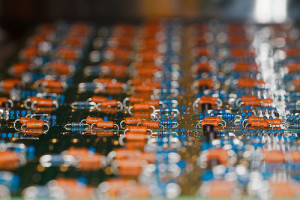 Take a look around the web and you are bound to find hundreds of articles, videos, and tutorials on how to fix anything and everything.
Take a look around the web and you are bound to find hundreds of articles, videos, and tutorials on how to fix anything and everything.
No doubt the Internet can be a great resource for fixing the small things, but often, these guides miss crucial steps or dumb down the safety aspect, sometimes leading to more headaches than a fix is worth. Ever heard the phrase, “knowing just enough to get yourself in trouble?” That’s often the case with homeowners who get too ambitious.
Here at Omaha Door & Window, we take great care to ensure a safe, stress-free environment for our customers and employees. In that light, today, we’re going to spend some time reviewing what’s good to DIY, and when it’s recommended to call in the pros.
When you can DIY
There are plenty of advantages to DIY projects, most importantly saving money and scheduling projects on your own time. However, that also means you need to choose something within your abilities. Here are just a few projects that we think almost anyone can do if they really want to:
Leaky faucet. Leaky faucets can be a pain. Luckily, they are relatively easy to fix if you have the right tools. The most common culprit is a worn out component of the valve seat–typically the washer or o-ring. Our first suggestion is to make sure you know what kind of faucet you have in order to make sure you are ordering the right parts. After carefully tracing the leak, it’s usually easy enough to do some basic reverse engineering to identify the leaky part.
Leaky sink. Like your faucet, leaks under the sink are an easy fix that usually only require locating the leak and tightening the pipes or mending the hoses/pipes under the sink. That being said, leaks can also be even more complicated. In the event of a clogged garbage disposal or drain that just won’t respond to the plumbing snake you have sitting in the garage, it may be time to call in a pro.
Squeaky door. Squeaky doors are extremely obnoxious, but luckily are easy to fix. Did you know that the most common household “lubricant”—WD40—is actually not a true lubricant? It may seem like a magic material, but it’s actually a solvent/rust dissolver. Instead, try a silicon or Teflon-based lubricant, or a light oil or grease. Removing the pins from the hinges and giving both a light coat of lubricant should help fix most squeaky doors.
Drywall repair (small holes). Holes no larger than a golf ball can be fairly easy to replace if you have the proper tools. Most hardware stores will carry kits with easy instructions on how to patch these holes. As long as there’s no structural damage underneath, this is a project most homeowners can easily tackle. After repair, be prepared to spend a decent amount of time sanding and prepping before repainting if you want your wall to look like new.
When to call the pros
Some projects are best left to the professionals for the average homeowner. Here are a few:
Electrical. While some electrical things can be DIYed, such as installing a fan or fixing an outlet, we strongly recommend hiring a pro for most if not all of your electrical needs. Upgrading your breaker, wiring a new outlet, and any number of other electrical projects can be a significant safety risk without the proper tools or training. When in doubt, call a professional.
Garage door repair/replacement. Routine maintenance of your garage door such as oiling the hinges and rollers is a very easy DIY project. However, if you have a cable or spring break then it’s best left to the professionals because it can be dangerous if you don’t have the proper tools. At Omaha Door & Window, we have trained garage door mechanics who can take care of all your garage door needs.
Window repair/replacement. Window removal, fitting, and installation is a complex process that’s best left to the professionals if you want a long-lasting product and a good-looking home. We take great care with all of our window installations here at Omaha Door & Window, and would be more than happy to talk to you about our process if you have questions before getting started.
Gas lines, utilities, etc. Like your electrical problems, anything that has to do with a gas line, water system, or other utility should probably be handled by a professional. There are tutorials online that will tell you these projects are easy to DIY, but why risk damaging your home or even worse, putting your family at risk because the instructions weren’t thorough enough? When in doubt, we suggest leaving these things to the pros. Trust us, it will be better in the long run.
It’s great to be a handy homeowner, but the last thing you want to do is make a situation worse because you got too ambitious. There are many more problems you can run into around the home than just the ones we’ve listed here, but following these basic guidelines should be a good starting point.
—
photo credit: Building an amplifier via photopin (license)
